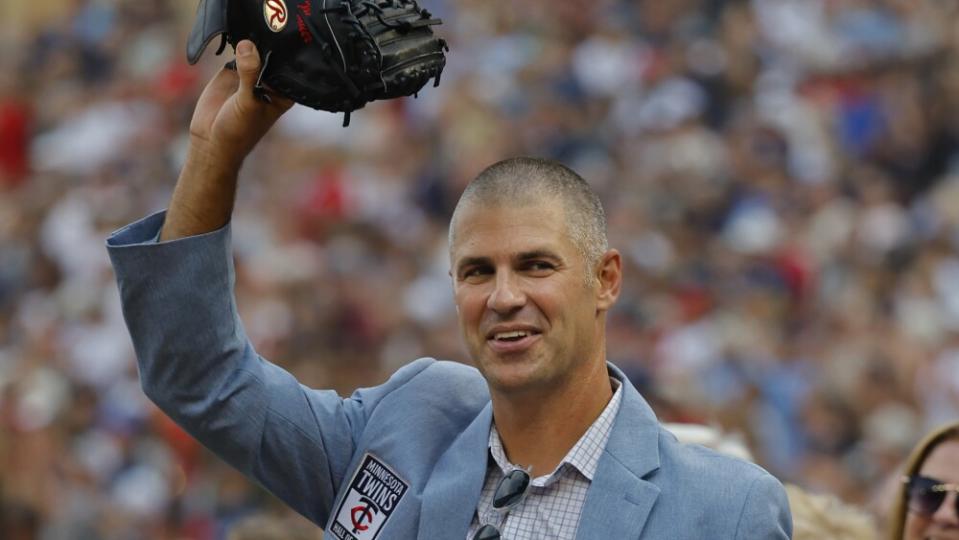Adrián Beltré, Joe Mauer, Todd Helton on track for Hall of Fame election; Billy Wagner close

NEW YORK — Adrián Beltré, Joe Mauer and Todd Helton appeared on track to gain entry to baseball’s Hall of Fame when results are announced, while Billy Wagner was likely to be right around the needed 75% threshold and Gary Sheffield was projected to fall short.
Just 270 players are in the Hall, 1.3% of the approximately 20,500 who have appeared in the major leagues, according to the Elias Sports Bureau. There are another 40 executives/pioneers, 23 managers and 10 umpires enshrined, raising the membership total to 343.
“These votes are literally life-changing,” said The Athletic’s Jason Stark, who has cast ballots for three decades. “I try never to forget that. That’s why it’s a huge responsibility.”
Big Hall or small? Baseball’s most divisive debate is whether a player warrants inclusion in Cooperstown.
Stark used all 10 of his available slots on this year’s Baseball Writers’ Association of America ballot. Boston Globe columnist Dan Shaughnessy checked just two, for Beltré and Mauer.
“I’m looking for someone who’s dominant at the position they played in the era in which they played,” said Shaughnessy, like Stark a winner of the Hall’s BBWAA Career Excellence Award.
Beltré was the leading vote-getter at 99% in his first try, according to Ryan Thibodaux’s Hall of Fame Ballot Tracker. Mauer, also on the his initial ballot, was second at 83%, and Helton was next at 82.5% in his sixth appearance.
Wagner, on for the ninth time, was at 78.4% and Sheffield, making his 10th and final appearance, was at 74.7%, followed by Andruw Jones at 70.6%. A player’s percentage usually declines among the final total of the approximately 400 ballots; the tracker’s figures includes voters who have revealed their choices, about half those eligible to mail in ballots.
Helton was at 79.8% on the tracker ahead of last year’s announcement and fell 11 votes short at 72.2%. Scott Rolen was the only player elected.
Four players could be elected for the fourth time in 10 years — the only year with five was the first election in 1936.
Anyone elected will be inducted into the Hall on July 21 along with manager Jim Leyland, voted by the contemporary era committee for managers, executives and umpires.
An average of 5.86 names were on ballots last year, down from 7.11 in 2022. The BBWAA said 13.9% of voters used all 10 slots, down from 33.8% in 2022.
“I don’t think there’s any clear dividing line anymore,” said Bob Costas, winner of the Hall’s Frick Award for broadcasters but not a voter. “I think the modern analytics have been informative, and they’ve revealed a valid case for some people who previously had been overlooked. But you’ve got so many overlapping circumstances.
“It’s a mishmash. There’s so many different ways to come at it,” added Costas, saying debate often comes down to: “Well, if this guy is in it, why isn’t that guy in?”
Steroids-tainted Alex Rodríguez (35.7%) and Manny Ramírez (33.2%) fell far short last year. Shaughnessy left them off, citing the criteria on the ballot specifying “voting shall be based upon the player’s record, playing ability, integrity, sportsmanship, character, and contributions to the team(s) on which the player played.”
“The hard part’s been the disqualifiers for those who take the character clause into consideration, and that’s been the bane of existence for this Hall voter for quite some time,” Shaughnessy said. “It feels like we’re finally clearing through a little bit, but it’s still strict, unforgiving on that one.
“I know it’s not popular, and I know it’s going away. I think the younger voters don’t care about it, and I understand that.”
Beltré, a four-time All-Star and five-time Gold Glove third baseman, hit .286 with 477 homers and 1,707 RBIs for the Los Angeles Dodgers (1998-2004), Seattle (2005-09), Boston (2010) and Texas (2011-18). His 2,759 games at third base are second to Brooks Robinson’s 2,870 and his 636 doubles are 11th on the career list.
Mauer was a six-time All-Star, three-time Gold Glove winner and the 2009 AL MVP during 15 seasons with Minnesota. He is the only catcher to win three batting titles. He batted .306 with 143 homers and 906 RBIs with Minnesota from 2004-18.
Helton received 16.5% support in 2019, his first year on the ballot. A five-time All-Star first baseman and the 2000 major league batting champion, he hit .316 in 17 seasons for Colorado with 369 homers, 1,406 RBIs and 1,401 runs. He had widely divergent home/road statistics, batting .345 with 200 homers and 791 RBIs in the mile-high air of Coors Field and .287 with 142 homers and 547 RBIs on the road.
Wagner was on 10.5% of ballots when he was first eligible in 2016. The seven-time All-Star is sixth in career saves with 422, going 47-40 with a 2.31 ERA in 16 seasons. A left-handed reliever, he struck out 1,196 in 903 innings with Houston (1995-2003), Philadelphia (2004-05), the New York Mets (2006-09), Boston (2009) and Atlanta (2010).
Sheffield received 11.7% when first on the ballot in 2015. A nine-time All-Star and the 1992 NL batting champion, Sheffield started as an infielder before shifting to the outfield for most of his career. He hit .292 with 509 homers and 1,676 RBIs in 22 seasons for Milwaukee (1988-91), San Diego (1992-93), Florida (1993-98), the Dodgers (1998-2001), Atlanta (2002-03), the New York Yankees (2004-06), Detroit (2007-08) and the Mets (2009).

